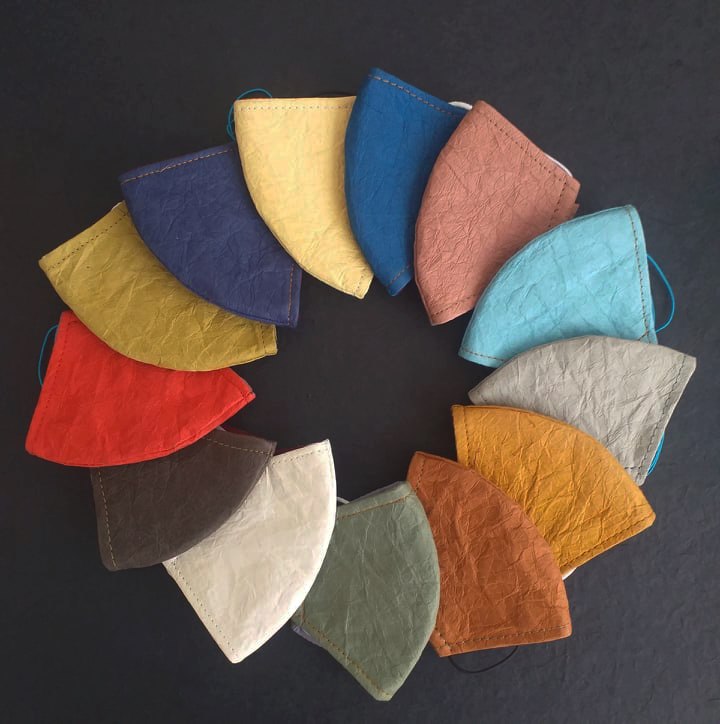Abaca face mask developed in Misamis Oriental gets DOST nod
By: Eldan Sambatyon
|
Published on: June 5, 2020

Colors of 7XB face mask from Salay Handmade in Misamis Oriental. Photo from 7XB Face mask Facebook.
A face mask made of Philippine Abaca and developed in Misamis Oriental has been tested and approved by the Department of Science and Technology (DOST) Region 10.
The masks are made from organic raw materials like abaca fibers and grass which are made into a special filter. This is an eco-friendly product since there are no plastic materials nor any harmful chemicals used in its fabrication.
In fact, DOST-10’s filtration and protection test results revealed that the abaca face mask is 7 times better than ordinary cloth face masks after conducting 3 tests:
- Microscopy to evaluate fiber structures and measure pore sizes
- Water Drop Test to determine the capacity of a fabric or material to repel water
- Laboratory-Modified Water Drop Test, an in-house modification of the Water Repellency: Spray Test (AATCC TM22) of the American Association of Textile Chemists and Colorists
The strong abaca fibers give the face mask its strength and durability allowing the mask to be reused numerous times. Yes! Despite being a paper-based mask it can be washed several times with soap and water.
The environmentally friendly face mask called “Fiber mask 7XB” created by Neil Francis Capistrano Rafisura and Salay Handmade Paper Industries Inc. has been getting a lot of attention in social media with its special qualities and appearance. Check it out here.
The Department of Environment and Natural Resources (DENR)-10 made an initial order of 1000 face masks to be given to frontliners.
The abaca face mask is welcome progress in our continued quest to help the people and frontliners by developing locally made personal protective equipment and therapeutics using sustainable indigenous materials in the fight against the COVID 19.
The new face mask addresses the need for more options for the Filipino public who are required to wear face masks when they leave their homes while the country undergoes varying stages of community quarantine to stop the spread of coronavirus disease.
DOST-PTRI had also released Filipino designs for face masks for public use during quarantine while the University of the Philippines released face mask DIY designs for free.
Meanwhile, Pinoy technology is also being used to produce 500,000 washable airborne droplets-repellent cloth face masks to be donated to frontliners.
Philippine Abaca has also been used as raw material for Personal Protective Equipment such as lab gowns, is being studied as possible lining for astronaut spacesuits, used to develop non-woven fabric to filter water pollutants, and has also been used in the SWAN amphibious vehicle for disaster rescue and relief operations.
SEND CHEERS in the comments below to the makers of Philippine abaca face masks for innovating using indigenous material.
Want to know how to be a Proud Pinoy? Like, Follow, Subscribe to GoodNewsPilipinas.com, and our socials Facebook, Twitter, Instagram, Good News Pilipinas! TV on YouTube, for new story notifications, and e-mail newsletters for updates on more Filipino Pride stories.